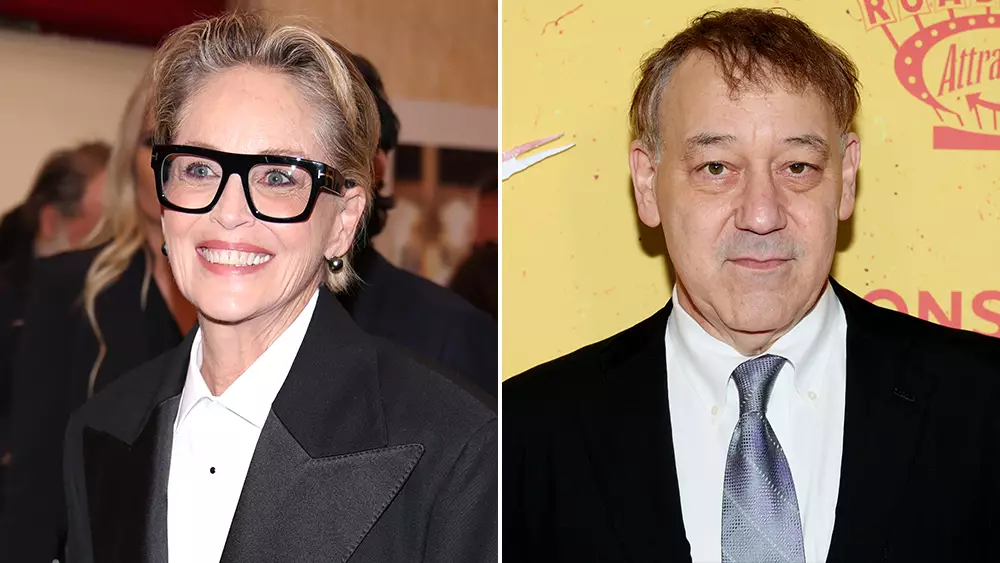Sharon Stone, an iconic figure in the film industry, recently took to the stage at the Torino Film Festival to offer insights into her past experiences, particularly focusing on her work in the 1995 film *The Quick and the Dead*. As she received the prestigious lifetime achievement award at the festival, Stone’s reflections sparked intriguing discussions about her career trajectory, her collaboration with notable directors, and the larger implications of gender dynamics in Hollywood. This article delves into her experiences, the evolution of her roles, and the inherent challenges she faced as a woman in a predominantly male-dominated industry.
During the Q&A, Stone didn’t shy away from being candid about her experiences working with director Sam Raimi. While she acknowledged the creativity embedded within his films, her critiques carried a weight of disappointment—particularly regarding the personal and professional loyalty she felt was lacking in their working relationship. In contrast, her collaboration with legendary director Martin Scorsese on *Casino* was framed as a cornerstone of her career. She articulated a sense of belonging and continuity in her professional relationship with Scorsese, suggesting that their shared cultural background fostered a bond that transcended the work itself. Stone’s assertion that Scorsese embodies loyalty—a concept she clearly found missing in her dealings with Raimi—adds a deeply personal tone to her reflections on the industry’s dynamics.
Stone’s decision to pivot to producing and the hurdles she encountered illuminate a significant conversation regarding the treatment of women in Hollywood. She recounted her ambitious attempts to command a $14 million budget following her production of *The Quick and the Dead*, only to face challenges grounded in sexism. Stone articulated that her experiences—a blend of high expectations and stark realities—mirrored the complexities women face when trying to break through the myriad barriers that still exist in the industry. Despite being met with praise for her pitches and ideas, the gender barriers proved insurmountable for a long period, reinforcing the notion that external perceptions often diminish the potential of female filmmakers in a male-dominated landscape.
Interestingly, *The Quick and the Dead*—which initially bombed at the box office and garnered mixed reviews—is now celebrated as a cult classic. This transformation symbolizes the often unpredictable nature of cinematic reception—a fitting reminder that films can find their audiences long after their initial release. Stone’s portrayal of a gunslinger avenging her father represents more than just a role; it reflects a particular narrative of female empowerment rarely seen in Westerns, a genre typically dominated by male protagonists. The journey of the film from obscurity to cult status also begs the question of how societal perceptions shift over time, allowing for a reevaluation of a film’s significance and the performances within it.
The Future of Female Filmmakers
In her remarks, Stone passionately argued for the need to elevate female voices within the industry. Her belief that her talents were underutilized due to systemic sexism in Hollywood is not an isolated sentiment; it resonates with many aspiring female filmmakers and actors today who continue to face similar obstacles. The notion that women like Stone, despite their accomplishments, encounter resistance highlights ongoing challenges in achieving equality in the film industry. The call to action is evident—there is an undeniable necessity for a culture of support, acknowledgment, and empowerment for women at all levels of filmmaking.
Sharon Stone’s reflections at the Torino Film Festival serve as a compelling reminder of the dynamics at play within Hollywood, underscoring the importance of loyalty, relationships, and female empowerment. As she champions her legacy and the invaluable contributions of women in film, it becomes clear that the journey toward equity and recognition is ongoing. Stone’s advocacy for greater representation and support for female filmmakers is a challenge to the industry—one that calls for profound change in how creativity is nurtured and recognized across genders. The film industry must learn from its past to pave the way for a more inclusive future, ensuring that stories from diverse perspectives continue to be told and celebrated.


Leave a Reply